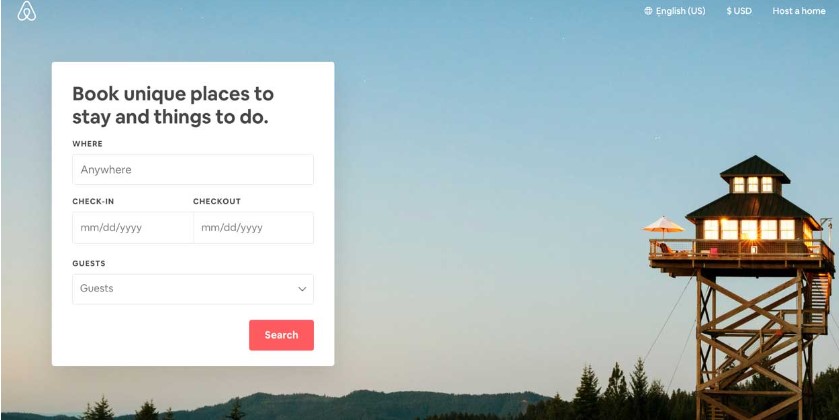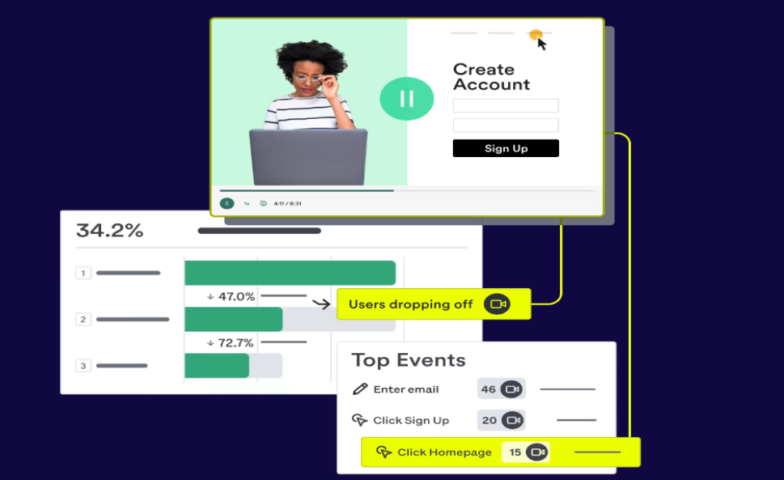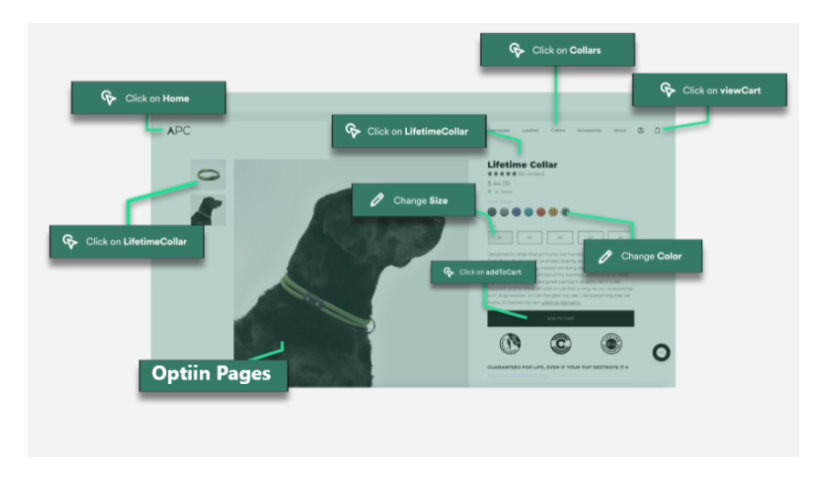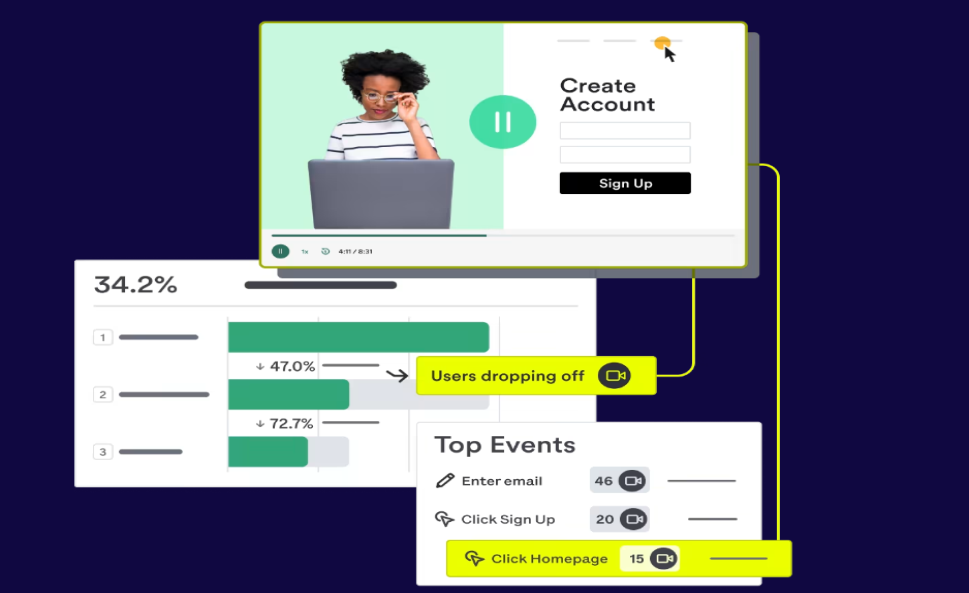Table of Contents
Key tips create high-converting website, Imagine you are a small business owner with a physical store, and you want to expand your reach by creating an online presence. You decide to build a website to showcase your products or services, but you quickly realize that just having a website is not enough to drive sales. To truly succeed, you need a high-converting website that captivates visitors and motivates them to take action. In this blog post, we will explore key tips to help you create a website that not only attracts potential customers but also converts them into loyal buyers.
Building a successful website can be a daunting task, especially for small businesses with limited resources. However, with the right strategies and a clear understanding of your target audience, you can create a website that stands out from the competition and drives results. Let’s dive into the tips that will help you achieve this.
Keep in mind that while these tips are designed for small businesses, they are applicable to any organization looking to improve their website’s conversion rate. So, whether you’re just starting out or have been in business for years, these insights will help you create a website that effectively communicates your value proposition and converts visitors into customers.
Key tips create high-converting website, A website is the face of any business in the digital world. It not only represents your brand but also acts as a platform to attract and engage potential customers.
However, creating a high-converting website that drives leads and sales requires more than just great design and user experience.
Understanding the Components of a High-Converting Website

Key tips create high-converting website: Optimizing Website Speed and Performance for Better Conversions
It demands a deep understanding of your target audience, their preferences, and buying behavior. In this blog post, we will share some key tips that will help you create a high-converting website that delivers a remarkable user experience and drives conversions.
Effective Content Creation Strategies for Conversion Optimization
Whether you are a startup or an established business, these tips will help you get the most out of your website and take your online presence to the next level.
Make sure your website has a clear, user-friendly design that is easy to navigate.
Mobile Optimization: Capturing Mobile Users for Higher Conversions
Use compelling and engaging headlines and subheadlines to grab the reader’s attention.
Include strong calls to action (CTAs) throughout the website to encourage visitors to take action.
A great user experience is crucial for a high-converting website. Visitors should find it easy to navigate your site, access the information they need, and complete desired actions. By optimizing the user experience, you can reduce friction and increase the likelihood of conversions.
Start by ensuring your website loads quickly. Studies show that even a one-second delay in page load time can lead to a significant drop in conversions. Optimize your images, leverage caching, and choose a reliable hosting provider to improve your website’s speed.
Next, focus on intuitive navigation. Make it simple for visitors to find what they’re looking for by organizing your content into logical categories and using clear and descriptive labels for your menu items. Additionally, incorporate a search functionality to allow users to quickly find specific information.
Lastly, optimize your website for mobile devices. With the increasing use of smartphones and tablets, it’s crucial to ensure your website looks and functions well on smaller screens. Implement responsive design techniques to automatically adjust your site’s layout based on the device being used, providing a seamless experience for all visitors.
Defining Your Target Audience and Unique Selling Proposition
Optimize your website for search engines to make it easier for potential customers to find you.
Use high-quality images and videos to showcase your products or services.

Before you start designing your website, it’s crucial to have a clear understanding of your target audience. Who are they? What are their needs and pain points? What motivates them? By answering these questions, you can tailor your website’s content, design, and user experience to resonate with your ideal customers.
Start by conducting market research to gather insights about your target audience. This can involve analyzing demographic data, conducting surveys or interviews, and monitoring your competitors’ websites. The goal is to identify your audience’s preferences, interests, and behaviors so you can create a website that speaks directly to them.
Once you have a solid understanding of your target audience, use this information to inform your website’s design and content decisions. For example, if your audience is tech-savvy and values convenience, you might prioritize a modern and user-friendly design with easy navigation and quick checkout options. On the other hand, if your audience is more traditional and values personal relationships, you might focus on showcasing testimonials and highlighting your exceptional customer service.
Make sure your website is mobile-friendly, as more and more people are accessing the internet via their smartphones.
Use social proof, such as customer testimonials and ratings, to build trust and credibility with potential customers.
Craft an Engaging User Experience: Navigation and Page Layout
Offer a clear value proposition that explains to visitors why your products or services are better than the competition.
Include a contact form or other easy-to-use method for visitors to get in touch with you.
Strategic Call-to-Actions: Converting Visitors into Customers
Regularly test and optimize your website to improve its performance and increase conversions.

Create Compelling and Relevant Content
Content is the heart of any website, and creating compelling and relevant content is essential for driving conversions. Your website’s content should not only inform visitors about your products or services but also engage and persuade them to take action.
Start by clearly communicating your value proposition. What sets you apart from your competitors? Why should visitors choose your business? Craft a compelling headline and use persuasive language to convey the unique benefits you offer.
In order to turn a simple statement into a more engaging one, it’s important to add details that create a mental image for the reader or listener. In the example given, the bakery added “artisanal,” “baked fresh daily,” and “with love and care” to make the description more appealing and descriptive.
By doing so, they not only give important information about their product but also create a feeling and a sense of quality that sets them apart from other bakeries.
In addition to a strong value proposition, your website’s content should address your audience’s pain points and provide solutions. Use storytelling techniques to make your content more relatable and emotionally connect with your visitors.
If you’re a fitness trainer targeting busy professionals, share your personal story of how exercise transformed your life and offer tips for adding fitness into a hectic schedule.
Try these recommended tools
Here are our Recommended FUNNELS SYSTEMS
- Simvoly
- Click Funnels
- LeadPages
- Systeme – Totally Free to use
- Thrive Landing Pages
- Brizy – Totally Free to use
- Unbounce
- Site123
- Convertrii
Conclusion
Creating a high-converting website is a continuous process that requires ongoing optimization and refinement. By knowing your target audience, creating compelling content, and optimizing the user experience, you can build a website that not only attracts visitors but also converts them into loyal customers. Remember, the key is to understand your audience’s needs and motivations and tailor your website to meet those expectations. With these tips in mind, you’ll be well on your way to creating a high-converting website that drives business growth.
FAQ
Q1: What are the key tips to create a high-converting website?
To create a high-converting website, consider the following key tips:
Optimize your website’s loading speed by compressing images, minifying code, and using caching techniques.
Ensure a clear and visually appealing design that is easy for users to navigate.
Implement a responsive design to provide an optimal browsing experience on different devices.
Incorporate persuasive call-to-actions that encourage users to take desired actions such as making a purchase or subscribing.
Focus on creating compelling and relevant content that addresses the needs of your target audience.
elling, action-oriented language and strategically placing CTAs throughout your site, you can prompt visitors to take specific actions—such as making a purchase, signing up for a newsletter, or requesting a demo—which can significantly increase conversion rates.
Why is website loading speed important for conversions?
Website loading speed is crucial for conversions because users expect fast-loading websites. Slow-loading websites can lead to higher bounce rates and abandoned purchases. By optimizing your website’s loading speed, you provide a seamless user experience, keep visitors engaged, and increase the likelihood of converting them into customers.
How can a clear and visually appealing design impact conversions?
A clear and visually appealing design is essential for conversions as it helps capture users’ attention and creates a positive impression of your brand. A visually appealing design enhances the overall user experience and instills trust, encouraging visitors to stay longer on your site and explore your offerings. This, in turn, increases the chances of conversions.
What is the significance of a responsive website design?
A responsive website design is crucial for conversions because it ensures your site is accessible and functional across various devices, including desktop computers, smartphones, and tablets. By providing a seamless browsing experience regardless of the device being used, you eliminate any potential barriers for users and maximize the chances of converting them into customers.
How can persuasive call-to-actions boost conversions?
Persuasive call-to-actions (CTAs) are essential elements that guide users towards the desired actions on your website. By using compelling, action-oriented language and strategically placing CTAs throughout your site, you can prompt visitors to take specific actions—such as making a purchase, signing up for a newsletter, or requesting a demo—which can significantly increase conversion rates.

Leave a Reply